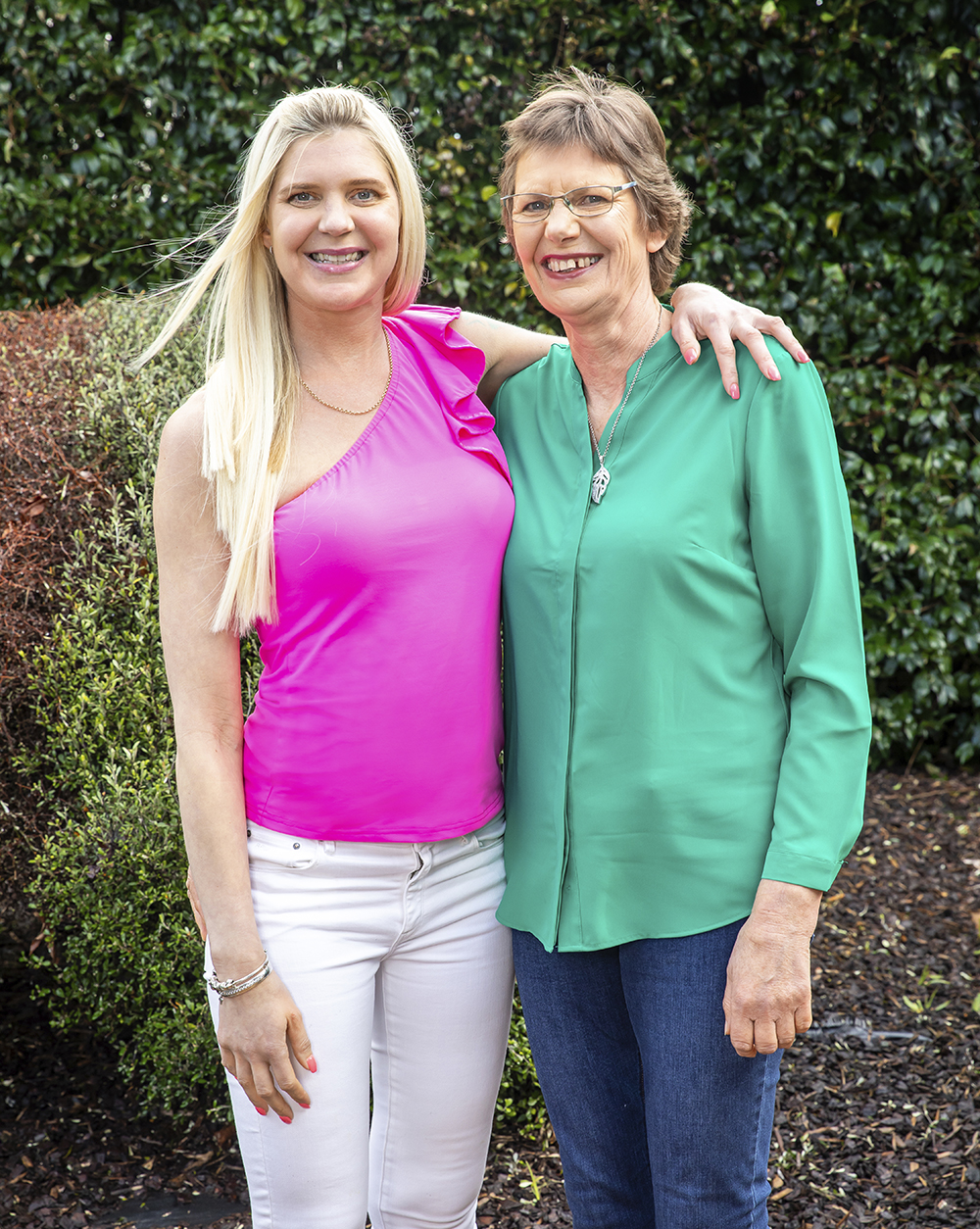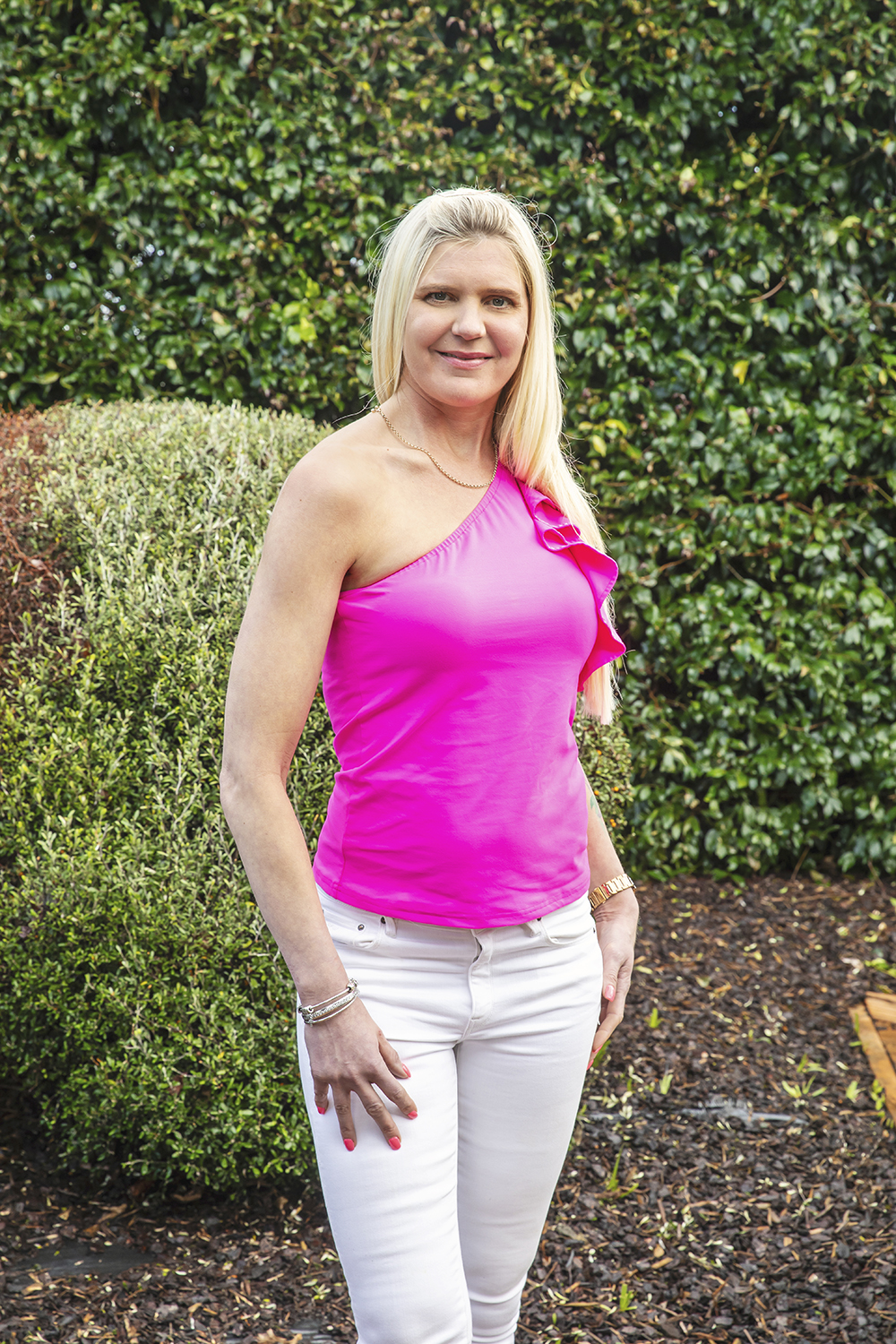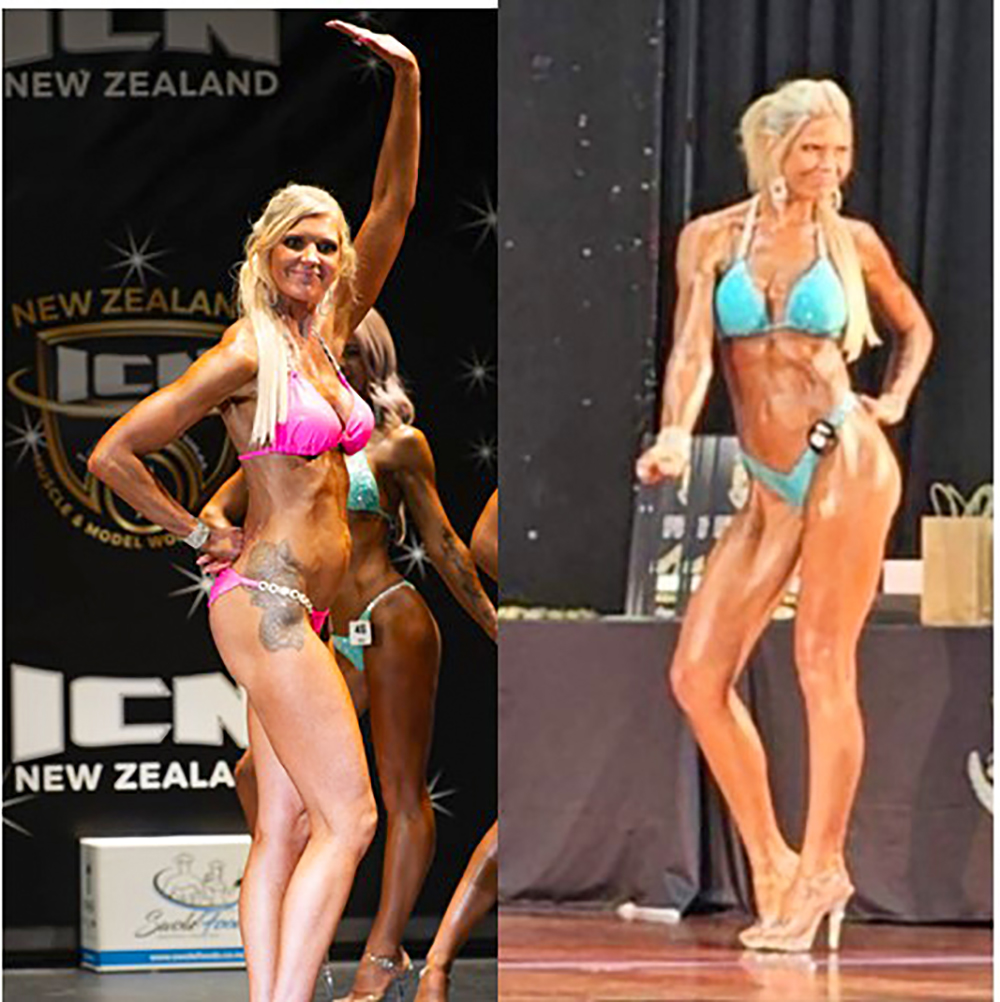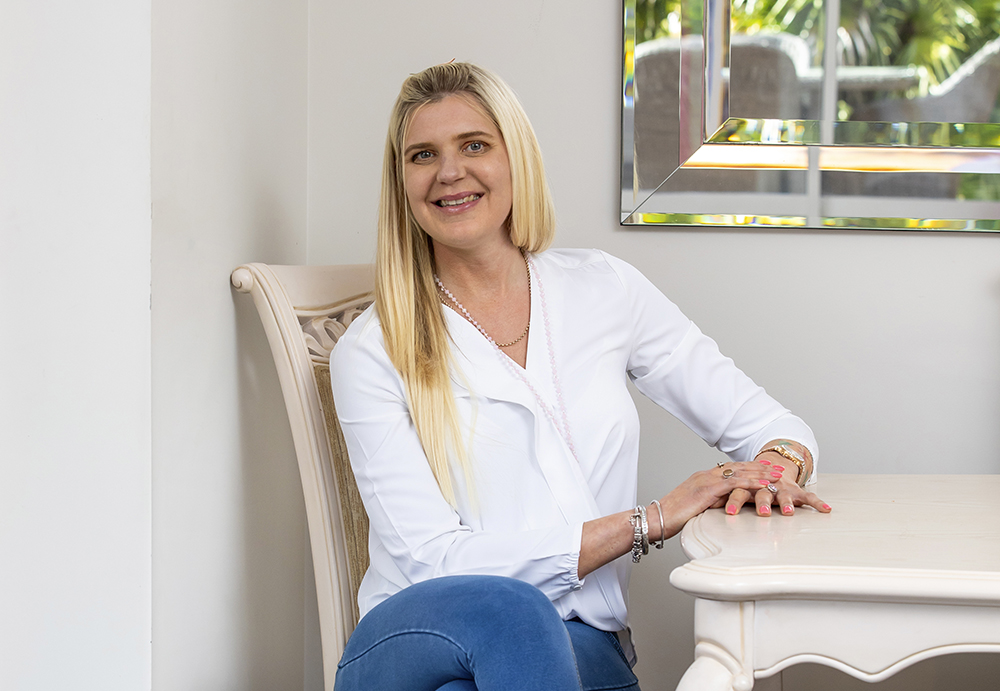Hannah Aitken is a force to be reckoned with. She runs a successful corporate branding business, is a single mum to Billyrose, 13, and in April she took home gold in an Auckland bodybuilding competition. She also has relapsing remitting multiple sclerosis (MS).
“I’ve always been very stubborn,” says Hannah, 40, who was bedridden with pneumonia 48 hours before the Weekly visited her at her South Auckland home. “I’ve never let having MS stop me doing anything. A couple of days ago, I had blood pouring out of my nose. But I was determined to be ready for this interview – and I am.”
It’s a typical response from Hannah, who first showed signs of the chronic central nervous system disease aged 17. “I was so tired, I couldn’t get out of bed,” she recalls. “I had no idea it was MS – why would I? Then when I was 19, I got shingles, which was a dead giveaway.” (There is evidence that people who get shingles are more likely to develop MS.)
Although MS isn’t directly inherited, Hannah’s uncle also had the disease. “Hannah’s dad’s brother developed it at 39,” explains mum Julie, 67, who travels regularly from Rotorua to help Hannah. “His started in his hands and developed quickly into his brain. He was in a wheelchair soon after he was diagnosed. So we knew a bit about it, but we were always optimistic.”

‘I didn’t want to be sick… I thought it would be easier not to know’. Hannah with her supportive mum Julie.
Despite the frightening symptoms, Hannah still refused to admit there was anything wrong. “I had a heap of UTIs [urinary tract infections], and I started dropping things and not knowing,” she tells. “Then my left leg started dragging. Over the course of a week, it spread across my whole left side. It was like having a stroke, except in reverse. With a stroke, it starts bad then gets better – with MS, the symptoms keep getting worse.”
Determined to ignore the signs, Hannah went to university to study social science. It was here she first reached out for help.
“I told the university counsellor I was really tired and asked if it was okay if I skipped a lecture. She said, ‘It must be hard being that tired all the time,’ but then our time ran out and nothing else happened.”
Hannah says she continued her studies “until I was too tired to get up”, but eventually dropped out. Seven years after the initial symptoms, 24-year-old Hannah lost her vision. With her left side feeling like concrete, she had no choice but to go to hospital.
“I didn’t want to be sick – what 24-year-old does? I was having fun and trying to enjoy my life. I thought it would be easier not to know.”
At the hospital, a lumbar puncture and an MRI confirmed she had MS. [These days a spinal tap is used instead of a lumbar puncture.]

A raft of treatments followed, some of which worked better than others.
“Some were horrible. I’d have them once a week, but be bedridden for three or four days. Others left me with huge welts on my skin.”
During the good phases, Hannah enjoyed a relatively normal life and had Billyrose on the eve of her 27th birthday. She also became a regular at the gym, putting weights on her walker on the days she couldn’t walk.
Then in 2019, at a U2 concert, her legs started trembling uncontrollably. “I asked security to get me out, assuring them I wasn’t drunk. Often people think we’re drunk because we’re so wobbly.” And her symptoms got worse.
“At the end of the first lockdown, the nerve pain in my feet and legs was terrible. I’ve had pain for about 12 years, but this was insane – I wanted to get my legs amputated. It felt like someone was holding a cattle prodder against my feet.”
Hannah was using a walker by the time she was admitted to Auckland Hospital in 2020.
“I’d been using it regularly, but when my neurologist told me it was time to get out of bed and start walking, I realised I didn’t know how.”

One symptom of MS is that if you don’t use an area of your body for a while, it can result in the brain “forgetting” how to use it. “I had to learn to stand all over again and I couldn’t turn corners. I’d have to shuffle my feet like a robot to go in any direction apart from straight.”
Hannah never gave up and with the help of the team at Auckland Hospital, she managed to recover and get back to the gym. Then last year, her boyfriend at the time suggested bodybuilding.
“I thought it was ridiculous at first, but then I thought, ‘Why not?'” she smiles.
Although the competition in 2022 didn’t go well, Hannah was determined to succeed. “This year was about redemption and I did it,” she says. With the help of a posing coach, Hannah got on stage in high heels last April, winning gold in the Physically Challenged Standing division. In August, she competed in the ICompete Natural competition in Hastings and she’s hooked.
“MS can be hard for others to see as it can come on very quickly,” she explains. “I can go from looking fine to being unable to walk in under an hour. But I’ll never not do something because I have MS. I will always try.”
Multiple Sclerosis The Facts
MS can cause a wide range of symptoms, and everyone is affected differently, however common symptoms include:
• Fatigue and exhaustion
• Vision problems
• Numbness and tingling, muscle spasms, stiffness and weakness
• Mobility problems, limb shakes and pain
• “Brain fog”
• Bladder and/or bowel issues.
For more information, visit msnz.org.nz or call 0800 67 54 63.




